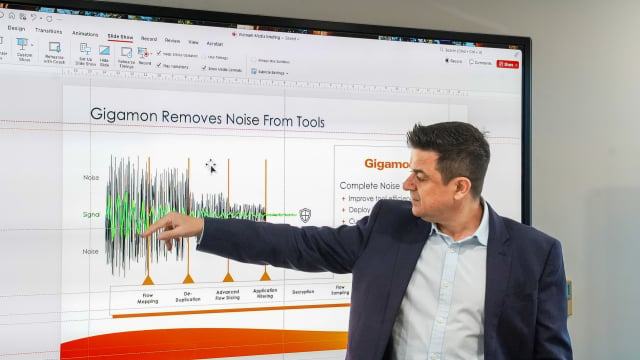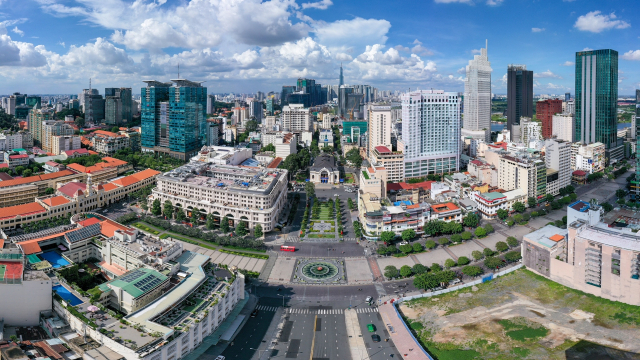Leader Talk
VAMA Chairman: "It is forecasted in 2018 the demand for CKD automobile models will increase"
According to Toru Kinoshita, chairman of Vietnam Automobile Manufacturers' Association (VAMA) cum president of Toyota Motor Vietnam, under the impact of some conditions regulated in Decree 116, auto companies may face difficulties and have to postpone Complete Built Up (CBU) importation.

Over the recent months, the automobile market in Vietnam has fluctuated significantly when the prices of cars have been adjusted unexpectedly and new policies as Decree No. 116 on conditions on assembling, importation and business relevant to cars and Decree No. 125 on preferential tariff frames recently released by the Government have come into effect.
This has impacted dramatically on the import of cars from ASEAN countries of almost Vietnamese automobile companies including Toyota Motor Vietnam.
TheLEADER had a talk with the chairman of Vietnam Automobile Manufacturers' Association (VAMA) cum president of Toyota Motor Vietnam (TMV) Toru Kinoshita about this issue.
How does Decree No. 116 as well as Decree No. 125 relating to regulations on zero per cent import duty for Complete Knock Down (CKD) parts and tentative idea relating to Special Consumption Tax (SC)T revision for CKD based on localization content impact the automobile industry in general and the Toyota business in particular?
Toru Kinoshita: Basically, VAMA in general and TMV in particular always appreciate Vietnam Government’s support for Automobile industry development.
About Decree No. 116, we think that there are some difficult conditions that impact and create barriers for both local manufacturers and importers. VAMA has sent four recommendation letters to the Government to remove those conditions, especially three conditions as follows.
Regarding the Overseas Vehicle Type Approval (VTA) requirement for Complete Built Up (CBU) importers, VAMA understands that most of VAMA automakers are unable to find any suitable overseas VTA matching with specifications of Vietnam importing vehicles. Each country’s Government tests and certifies following local regulations for domestic-usage vehicles only, export vehicles are out of scope. Exporting vehicles are made with a purpose to meet the customer expectation and the specific regulatory requirement in each importing country. It is quite obvious that there is a gap between specifications/model codes of domestic-usage vehicles and exporting vehicles.
Some countries do not have VTA as the Governments only check emission or let automakers to certify themselves. Some countries have VTA, but may not be accepted by the Vietnam Register (VR) due to different driving position, emission and specifications.
VAMA would like competent authorities to consider to accept local VTA issued by VR, instead of overseas VTAs when drafting the Circular.
VAMA members are not able to comply with such burden of a same importing vehicle being tested again and again for emission and safety, just due to different shipments. It is just waste of time and costly, causing customer’s inconvenience. Besides, we think that, in Vietnam, no such capacity of lot by lot check is there. VAMA would like to strongly propose competent authorities when drafting the Circular to apply emission and safety tests for 1st shipment only, and accept test report for next shipment as same as current practice, so that no retest is required.
And the requirement that CKD makers need to have a test road with 800m length and 400m of the straight road is an obstacle for automobile makers. Actually, any one,any maker, once they established the factory, they fully utilized their land. At this moment, after investment, suddenly there is such new requirement for huge lands, some companies can not set up required test course in their factory site or nearby. In some cases, if they need to set such test course far from the plant, it will be very costly and troublesome. If they couldn’t find any place, they will have to stop operation. It’s quite huge impact to existing auto manufactures. It will be acceptable if new requirement is applied for coming investors, later than Decree No. 116, not retroactive.
About Decree No. 125 on import tariffs on CKD parts with production volume per year, VAMA recommends Government to apply from 2018 without any conditions to ensure fair treatment for all manufacturers.
Regarding tentative idea on SCT revision for CKD base on localization content, we have not received latest detail information so we cannot give any comment. However, VAMA still recommends Government to ensure fair treatment for all manufacturers.
Is this the reason why TMV's profit is not as expected in 2017, while according to VAMA report, TMV ’s sales volume still increased in 2017?
Toru Kinoshita: 2017 is a year of fluctuation with many difficulties and challenges for Vietnamese automobile market. There were many wait-and-see customers who expected that the car price in 2018 would reduce due to the tax exemption for ASEAN CBU.
However, thanks to our effort in bringing high-quality product and service to customers, we could get customer’s trust and support. As a result, we could achieve highest sales record.
As the Chairman of the Vietnam Automobile Manufacturers' Association (VAMA), what is your prediction about challenges and opportunities for the domestic automobile industry as well as assembled automakers?
Toru Kinoshita: In short-term, in 2018, automobile market is forecasted to continue growing. However, as I mentioned above, under the impact of some conditions in Decree No. 116, auto companies may have difficulties and have to postpone CBU importation, which cause shortage of CBU in the market. It is forecasted that the demand for CKD models will increase.
In long-term, no one can tell, it depends on the market, the policy and the economy. But in 10-20 years, economic development would be even faster thanks to the population and quality of human resource. And I do believe that Vietnam market will become a very big market, automobile industry will also become big industry if the Government can stabilize long-term policy to foster the development of the industry.
Is there any big impact to the market and current importers or manufacturers when VinFast Company enters the market and Truong Hai is expanding the market share?
Toru Kinoshita: With great potentiality, new manufacturer entering the market or production expansion is essential, which will contribute to the development of automobile industry. VAMA always expects fair competition among manufacturers, or between production and import to develop a healthy automobile industry as well as ensure consumer’s rights.
What do you recommend to the Government authorities such as the Ministry of Industry and Trade, Ministry of Finance to develop the Vietnamese automobile industry towards long-term and sustainable goals?
Toru Kinoshita: I do hope that the Government would stabilize long-term policy including tax policy for a stable auto market and continue to invest for infrastructures such as highway and parking areas.
Also, in short term, the Government needs to have support scheme for local manufacturers to reduce production cost and increase competitiveness, including decreasing CKD parts import tax to zero per cent from 2018 without condition and implementing tax reduction or other support scheme for local manufacturers as well as step by step supporting automobile manufacturers and parts manufacturers to increase localization content for automobile industry development.
Thank you so much!
Prices of some automobile models suddenly increase to contradict common trend
Vietnam turns semiconductor vision into action
The global semiconductor industry is being reshaped by geopolitical tensions, shifting supply chains, and the surge of digital technologies.
Cutting red tape in APA approvals to speed up tax negotiations
The change in APA approval authority is expected to shorten processing time and enhance business proactiveness in international tax negotiations.
Enterprise cybersecurity is under threat from the inside
As hybrid cloud systems grow more complex, Vietnamese enterprises are struggling to detect cybersecurity threats moving laterally within their own networks.
Breakthrough for the international financial center ambition
The submission of the draft resolution on Vietnam’s international financial center to the National Assembly heralds a new developmental era for the country.
How leadership philosophy redefines hospitality in Nha Trang
More than just running a 5-star resort, Kristian Petersen is redefining the art of hospitality with a humane and sustainable leadership philosophy.
When organic becomes an inspiring wellbeing lifestyle
For Tyna Huynh, co-founder of Drinkizz, organic is not just a food choice but a way of life that fosters a deep connection between people, nature and community.










































